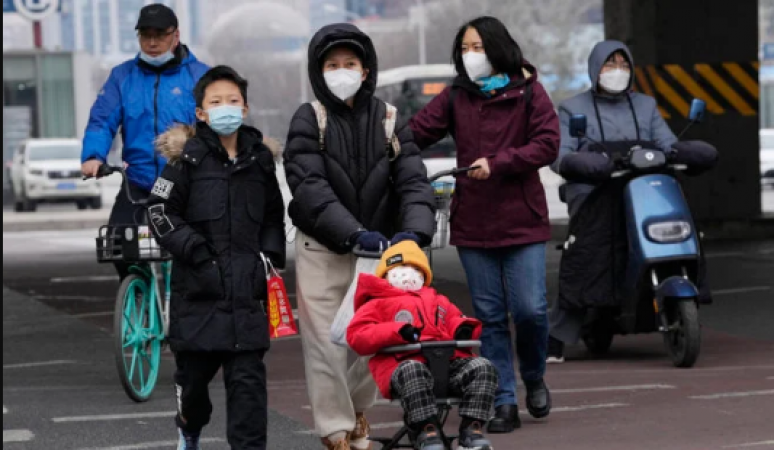
Beijing: Cities in China further relaxed testing and quarantine rules on Friday in response to nationwide protests demanding an end to the lockdown and greater political freedoms.
Last weekend saw the biggest demonstrations in decades, as anger and frustration over China's harsh pandemic response spilled into the streets.
China's vast security apparatus has moved quickly to quell the protests, increasing online censorship and population surveillance while increasing police presence.
Also Read: Labour defeats the Tories in a by-election
Many cities have now begun relaxing COVID-19 rules, such as discontinuing daily mass testing, which was a tedious requirement under Beijing's strict zero-Covid policy.
However, local conflicts continue to erupt occasionally.
Social media footage geolocated by AFP on Thursday night showed several people fighting with health workers wearing hazmat suits outside a school in Yicheng, Hubei province.
According to the author of the post, the people in the video are parents of students who have tested positive for the virus and have been taken to facilities for quarantine.
In front of the school gate, parents can be seen pleading with the administration to let their children go home. Another video from the scene showed at least a dozen police officers.
Also Read: People do not have religious freedom in these countries, US releases list
There are indications that the practice of sending positive cases to central quarantine facilities may change. Health professionals who support the local government's initiative to allow patients to quarantine at home were cited in an analysis by the state-run People's Daily on Friday.
This would be a significant departure from the law. When contacted on Friday, some officials of Beijing's Chaoyang district said that people who have confirmed the infection do not need to go to the central quarantine.
On Thursday, officials in Dongguan, a major manufacturing hub in the south, said people who meet "specific conditions" should be allowed to quarantine at home. It did not say what those conditions would be.
A similar policy was introduced on Wednesday in Shenzhen, a tech hub in the south. Central government officials have indicated that the zero-covid-19 policy could be widely relaxed.
Vice Premier Sun Chunlan told the National Health Commission on Wednesday that the Omicron variant was weakening and vaccination rates were rising, according to the official Xinhua news agency.
Sun, a key figure in Beijing's pandemic response, claimed these "new actions" were necessary because of the "new situation".
In those comments and another meeting on Thursday, he made no mention of zero-Covid-19, meaning the approach that has disrupted the economy and daily life may soon be put to rest.
The southwestern metropolis of Chengdu on Friday dropped the requirement for a recent negative test result, using only the green health code on an app to verify that a person has not traveled to a "high-risk" area. the wanted.
Also Read: UN human rights chief condemns new death sentences in Myanmar
Beijing also announced on Friday that a negative PCR test performed within 48 hours would no longer be required to use the city's public transport system.
Hospitals were urged not to refuse treatment to patients without a 48-hour test by the capital's health authorities the day before.
A pregnant woman in the city of Xi'an had an abortion in January after she was turned away from a hospital because she did not have a PCR result.
COVID-19 restrictions have resulted in several deaths in China, including the recent death of a four-month-old baby who was placed in quarantine with his father.
A viral post listing the names of those who died as a result of alleged negligence linked to the pandemic response has turned into a rally during protests.
In contrast to previous strict lockdowns, many other cities facing virus outbreaks are now allowing restaurants, shopping centers and even schools to reopen.
Hotels, restaurants, ski resorts and supermarkets will gradually reopen after a fire that killed 10 people and sparked anti-lockdown protests, officials in northwest China's Urumqi city said on Friday.
One of China's longest lockdowns occurred in the city of more than four million people in the far-western Xinjiang region, with some areas sealed off in early August.